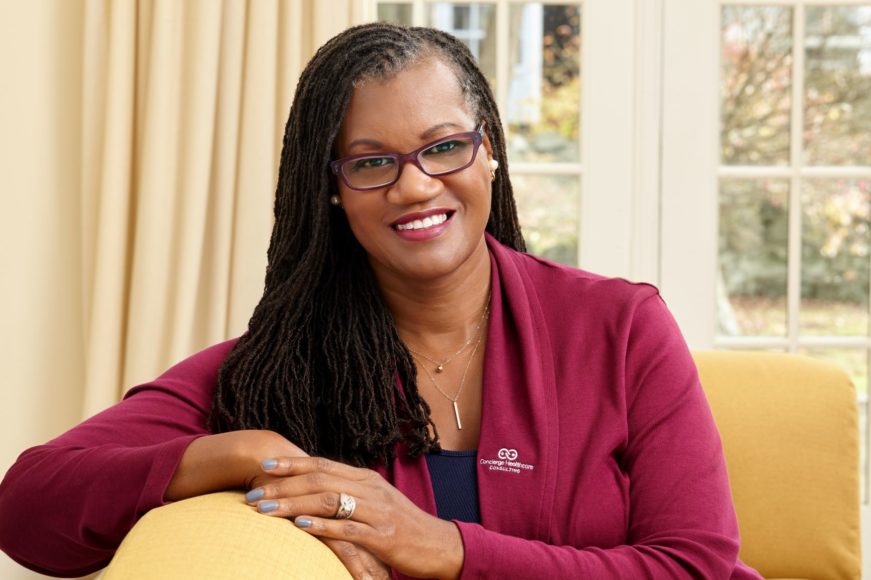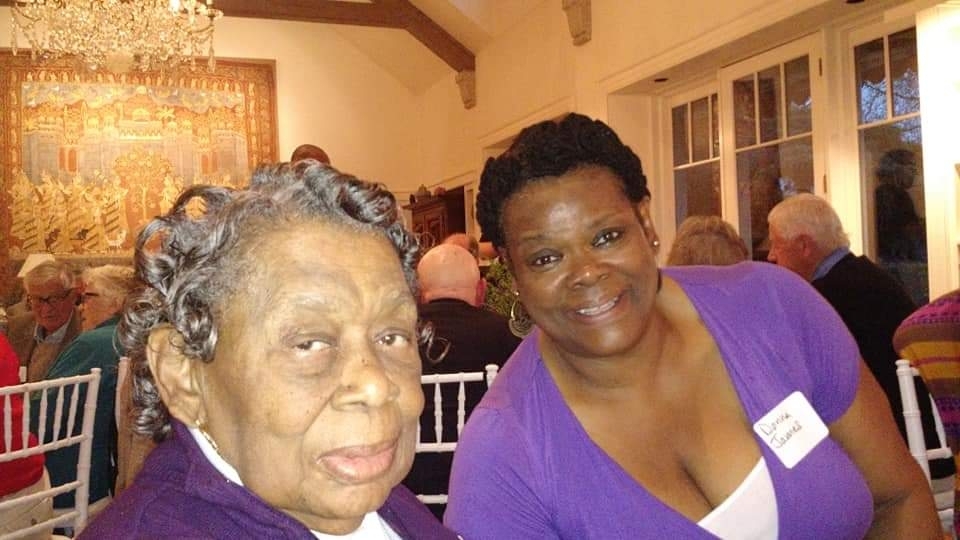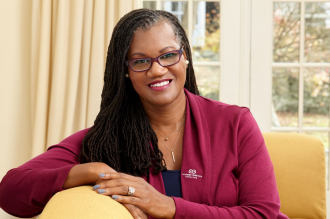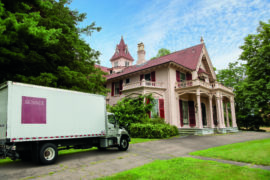“Caregiver”: The word — especially if divided into its components. “care” and “giving” — has a comforting connotation, painting a portrait of someone who provides support to another person in need. The role itself long predates its increasingly common usage in our lexicon over the past 50 or so years with some dictionaries placing its introduction circa 1972.
It is a role that has long held special significance for Black Americans, for whom caregiving is regarded as both an inherent duty and a privilege, one far more often embraced than shunned.
An AARP study, “Caregiving in the United States 2020,” notes that while the African American (family) caregiver often feels that there was no choice but to take on this role, “the majority find a sense of purpose or meaning in that role—more so than non-Hispanic white or Asian caregivers.”
Still, it is a privilege that extols a price. A fact sheet accompanying the AARP report, “The ‘Typical’ African American Caregiver,” notes that Black-family caregivers provide more than 30 hours of care a week of a type that is “more…high intensity” than that of non-Hispanic whites or Asians. Furthermore, the Black-family caregiver is employed full-time and the caregiving can cause work, earnings or both to suffer.
The African American family’s reliance on unpaid family caregivers is inextricably linked to a distrust of external institutions, a distrust born of centuries of racism.
That racial biases have resulted in inequality in health care is amply documented. Just two examples are the lack of proper pain management for Blacks and decreased access to emergency care.
Last year, The New York Times reported (“The Striking Racial Divide in How Covid-19 Has Hit Nursing Homes,” May 21,2020) that the disproportionate number of Covid deaths among Blacks and Latinos only multiplied for the elderly and that nursing homes — with large numbers of Blacks and Latinos-have been twice as likely to get hit by the coronavirus as those where the population is overwhelmingly white.”
Despite these sobering statistics, is there a shift in attitudes among Black families, both children and elders? Definitely yes. Just as clearly no.
The parent, for one thing, may not choose to move in with the adult child. Today there is an assortment of living situations and financing options for seniors. There are 55-plus communities, independent living residences and assisted living communities, some of which offer activities ranging from exercise to entertainment, others that simply provide opportunities for meal plans and social interaction with peers. Furthermore, residences specifically designed for seniors will most likely offer such features as single-floor living, no-step entry, walk-in tubs, accessible kitchens and extra wide halls and doorways to equip wheelchairs.
While financing is complex and challenging, many seniors find help through long-term care insurance, Medicaid — both for those with minimal funds and persons who are able to shelter their income in a trust — and veterans’ aid.
Yet, while these options are welcomed by some, they are soundly — or hesitatingly — rejected by others.
We spoke with several persons of color, a mix of individuals wrestling with eldercare choices as well as those recalling situations from the recent past. The spectrum of views indicates that Blacks should never be viewed as a monolithic culture. Yet certain shared values did emerge — a deep respect for one’s elders, a strong sense of family ties and an awareness that racial bias remains real and consequential.
Donna
Donna James, retired, helped situate her mother in an assisted living facility an easy mile-long walk from her house in Ossining. Though Donna offered to have her move in with her, her mother wanted to stay as independent as possible. She even drove until she was 81. From the start, Donna was her caregiver, stopping by before and after work every day. Her mother died four years ago at age 83.
“It was her choice not to move in with me. She wanted her own space. She always said, ‘God bless the child that has her own.’ This was a perfect arrangement as I had my own quiet place and she had hers.”
Donna concedes that, “Caregiving isn’t eas,y” but adds that “I did it unconditionally. I think it is a cultural choice. I was the caregiver for my grandmother and a great aunt as well.”
John and Becky
The 78-year-old mother of John Edwards, formerly a New Rochelle resident, never considered moving in with her son, an editor at Bloomberg, and his wife, Rebecca (Becky), the chief communications officer at the American Civil Liberties Union (ACLU). When John’s mother sold her apartment in Manhattan last year, she decided to move to Miami Beach.
Before his mother finalized the move, John and Becky researched assisted living facilities in Florida. Says Becky, “We thought an assisted living community with graduated care options would be ideal because of the medical support on-site. Since another move wouldn’t be required, we felt it would be perfect for the longer term.”
However, the lack of diversity at assisted living facilities became a concern. “We never felt confident that the care communities we were evaluating had a considerable Black population, which was disappointing,” says Becky,
As John’s mother is enjoying the warmer climate and social interaction, for now all are glad of her decision though they acknowledge that at some point everything may have to be reevaluated.
Michelle
Michelle Lawrence, an IT professional, lives with her 84-year-old mother in Westchester and cares for her whenever she is not at work. If the need occurs, such as when her mother had a recent heart attack, she will take time off under the Family Leave Act.
Noting her Jamaican heritage, Michelle says, “We do not put our elderly in nursing homes. We care for them as best we can at home and enlist other family members, if need be, to assist.”
She has set up cameras and connected her “mum” to Life Alert so she can watch her and communicate remotely.
Michelle says, “Most blacks of the diaspora were too busy trying to figure out how to survive in a society that made no room for them. Having every family member around you was a comfort … Sometimes it was a challenge, but it was one we were willing to work through, especially with our history of slavery where families were often separated. To place our elderly in those facilities is akin to closing and placing a priceless book upon a shelf somewhere else — not in our homes.”
Lynn
Lynn Godfrey of New Rochelle, the chief marketing officer of a health-care nonprofit, is a member of the so-called “sandwich generation,” balancing the needs of a 17-year-old daughter, who requires frequent college visits, with those of her 90-year-old mother, who moved in with the family once she started to show signs of dementia. Now, says Lynn, “Her cognitive issues have progressed to the point where she needs a higher level of care than I can sustain on a daily basis.”
Cultural norms play a significant role. Says Lynn, “African American families have traditionally relied on strong community networks — friends, church, extended family- to provide support for eldercare. Growing up in the ’70s through ’80s, both sets of my grandparents lived with us at one time or another and the idea of placing a parent in a ‘home’ was not embraced or considered the norm.”
Covid concerns have placed the search temporarily on hold.
Says Lynn, “My mother wouldn’t be in the best position to advocate for herself due to her dementia.””Lynn wonders too if the lack of diversity among assisted living residents might make her mother feel less “at home,” though she notes that a recent two-week stay at a Westchester facility worked out well. For now, Lynn is taking “baby steps,” increasing the amount of home health care as she seeks the best long-term solution.
Clearly, those we spoke with continue to believe that the younger generation has a responsibility to return the dedication and love they were given from their parents and other relatives. Yet today that love can take many forms based on values, resources, beliefs and lifestyle choices. It may go beyond the traditional paradigm to include everything from enlisting paid home health care to accepting the elder’s choice to live independently and “age in place” as long as possible to recognizing that moving the relative to a desirable facility is in the person’s best interest. And it is also love that at times will rebound to the traditional mode. As long as a concerned family member evaluates each situation thoroughly and rejects any “one size fits all” solution, the best situation eventually can be found. It is a search that requires diligence and even greater patience. Plus care. And giving.
Abbe Udochi is CEO of Concierge Healthcare Consulting, a geriatric care management practice based in New Rochelle that serves Westchester County and New York City. For more, visit concierge-care.com.






